Ghana
Ghana has been shown everywhere recently. In the past years, many Ghana was the first Southern-Saharan African country to launch a cellular mobile network (1992). It was one of the first countries in Africa to be connected to the internet and to introduce ADSL broadband services. African Americans have moved into Ghana as Ghana is a country on the move. Its motto is Freedom and Justice. Its national anthem is God Bless Our Homeland Ghana. Ghana has its capital city of Accra. Ivory Coast is the west of Ghana, Burkina Faso is in the north, Togo is in the east, and the Gulf of Guinea including the Atlantic Ocean is found on the south. Ghana has been home of the Kingdom of Dagbon and the Ashanti Empire. It is a nation that is mostly Christian, it has Muslims, and those who follow traditional religions too. The Akan people make up the majority of the people in Ghana along with other human beings. It has over 31 million people.
Ghana is a word that means "Strong Warrior King." It was a title given to the kings of medieval Ghana Empire in West Africa. The history of Ghana has a long history. There was Bronze Age structures in Ghana by 2,000 B.C. There was fishing in the extensive lagoons and rivers. There were many migrations in the western Sudan (the region north of modern Ghana drained in the Niger River). The 9th-century Berber historian and geographer Al Yaqubi described ancient Ghana as one of the three most organized states in the region (the others being Gao and Kanem in the central Sudan). The rulers in medieval Ghana had large wealth in gold, courts, and warrior/hunting skills. They traded in gold to North African merchants and to the western Sudan. The military achievements of these and later western Sudanic rulers, and their control over the region's gold mines, constituted the nexus of their historical relations with merchants and rulers in North Africa and the Mediterranean. Ghana was attacked by its neighbors too during the 11th century. There were many kingdom in the area of Ghana like the Bonoman. The trans-Saharan trade that contributed to the expansion of kingdoms in the western Sudan also led to the development of contacts with regions in northern modern Ghana, and in the forest to the south. Trade growth stimulated the development of the early Akan states located on the trade route to the goldfields, in the forest zone of the south. The Akan people raised new crops like the sorghum, bananas, and cassava. By the beginning of the 16th century, European sources noted the existence of the gold-rich states of Akan and Twifu in the Ofin River Valley.
According to oral traditions and archaeological evidence, the Dagomba states were the earliest kingdoms to emerge in present-day Ghana as early as the 11th century, being well established by the close of the 16th century. Although the rulers of the Dagomba states were not usually Muslim, they brought with them, or welcomed, Muslims as scribes and medicine men. As a result of their presence, Islam influenced the north and Muslim influence spread by the activities of merchants and clerics. There were the Kassena agriculturalists. They lived between the northern boundaries of the Muslim-influenced state of Dagomba and the southernmost outposts of the Mossi Kingdoms (or present day northern Ghana and southern Burkina Faso). The Kassena people lived in a so-called segmented society. They had kinship ties. The head of the clan ruled them. Trade existed among the Akan kingdoms and the Mossi kingdoms of the north. The Kassena saw Muslim influences in their lands too. The Bono people made the Bono state as being founded by the Akan people. Various aspects of Akan culture stem from the Bono state, including the umbrella used for the kings, the swords of the nation, the stools, goldsmithing, blacksmithing, Kente Cloth weaving, and goldweighing. The Ashanti Empire was famous in the Gold Coast. Under Chief Oti Akenten (r. ca. 1630–60), a series of successful military operations against neighboring Akan states brought a larger surrounding territory into alliance with Ashanti. At the end of the 17th century, Osei Tutu (died 1712 or 1717) became Asantehene (king of Ashanti). Under Osei Tutu's rule, the confederacy of Ashanti states was transformed into an empire with its capital at Kumasi. Political and military consolidation ensued, resulting in firmly established centralized authority.
Osei Tutu was influenced greatly by the high priest Anokye. Tradition said that he caused a stool of gold to descend from the sky to seal the union of Ashanti states. Stools already functioned as traditional symbols of chieftainship, but the Golden Stool represented the united spirit of all the allied states and established a dual allegiance that superimposed the confederacy over the individual component states. The Golden Stool remains a respected national symbol of the traditional past and figures extensively in Ashanti ritual. Osei Tutu allowed newly conquered territories to join the confederation and retain their customs. Their chiefs were given seats on the Ashanti state council. This act made it easier to conquer new lands. Ashanti states had internal self rule. Its chief jealously guarded the state' prerogatives against encroachment by the central authority. Unity developed. By the mid 1700's, Ashanti was a highly organized states. The wars of expansion that brought the northern states of Dagomba, Mamprusi, and Gonja under Ashanti influence were won during the reign of Opoku Ware I (died 1750), successor to Osei Kofi Tutu I. By the 1820s, successive rulers had extended Ashanti boundaries southward. Although the northern expansions linked Ashanti with trade networks across the desert and in Hausaland to the east, movements into the south brought the Ashanti into contact, sometimes antagonistic, with the coastal Fante, as well as with the various European merchants whose fortresses dotted the Gold Coast. European imperialists and colonizers came into Ghana by the late 1400's. Many of them wanted to gain territories especially in the Gold Coast. Initially, the Gold Coast did not participate in the export slave trade, rather as Ivor Wilks, a leading colonial historian of Ghana, noted, the Akan purchased slaves from Portuguese traders operating from other parts of Africa, including the Congo and Benin in order to augment the labor needed for the state formation that was characteristic of this period. The first Europeans to arrive at Ghana were the Portuguese. They reached the Gold Coast in 1471. It was a land filled with gold. The Portuguese wanted gold, ivory, and pepper. They built their first permanent trading post on the western coast of modern day Ghana.
This fortress, a trade castle called São Jorge da Mina (later called Elmina Castle), was constructed to protect Portuguese trade from European competitors, and after frequent rebuilding and modifications, still stands. Lisbon wanted to monopolize all trade in the region for royal hands. They wanted to prevent English, French, and Flemish efforts to trade on the coast. By 1598, the Dutch started to trade on the Gold Coast. The Dutch had forts too at Komenda and Kormantsi by 1612. The Dutch captured Elmina Castle from the Portuguese in 1637 and Axim in 1642 (Fort St. Anthony). Many other European traders joined in by the mid 1600's like English, Danes, and Swedes. The coastline was dotted by more than 30 forts and castles built by Dutch, British, and Danish merchants primarily to protect their interests from other Europeans and pirates. The Gold Coast became the highest concentration of European military architecture outside of Europe. Sometimes they were also drawn into conflicts with local inhabitants as Europeans developed commercial alliances with local political authorities. These alliances, often complicated, involved both Europeans attempting to enlist or persuade their closest allies to attack rival European ports and their African allies, or conversely, various African powers seeking to recruit Europeans as mercenaries in their inter-state wars, or as diplomats to resolve conflicts. Forts were built, abandoned, attacked, sold, and exchanged. The Dutch West India Company In 1750, the British African Company of Merchants was the successor to many earlier organizations of this type. These enterprises built and manned new installations as the companies pursued their trading activities and defended their respective jurisdictions with varying degrees of government backing. There were short-lived ventures by the Swedes and the Prussians. The Danes remained until 1850, when they withdrew from the Gold Coast.
The British gained possession of all Dutch coastal forts by the last quarter of the 19th century, thus making them the dominant European power on the Gold Coast. By the 1600's, social changes caused Ghana to be a gold exporting economy to a slave importing economy. Europeans and Africans clashed. Many Europeans died from disease. The slave trade grew along with the anti-slavery movement too. Many clergymen condemned the slave trade as early as the 17th century. The Quakers opposed slavery as early as 1727, and the Danes stopped trading in slaves. Sweden and the Netherlands soon followed. British slave trading ended in 1807. In 1808, slave trading in America ended. Illegal slave trading existed in America ended by the 1860's. Many sincere people fought to end the African slave trade. Other people saw the growth of the Industrial Revolution causing new markets to exist and that contributed to not use human beings as salves anymore. The British remained an imperial power in Ghana. The Ashanti of the Akan people fought British colonialism constantly. The Ashanti kingdom advanced during the 1800's. Incidents and sporadic warfare continued, however. In 1823, the First Anglo-Ashanti War broke out and lasted until 1831. The Ashanti fought for independence against the British in the 2nd Anglo-Ashanti War in 1863 to 1864. The British had their 3rd war against the Ashanti. The subsequent peace treaty of 1875, required the Ashanti to renounce any claim to many southern territories.
The Ashanti also had to keep the road to Kumasi open to trade. From this point on, Ashanti power steadily declined. The confederation slowly disintegrated as subject territories broke away and as protected regions defected to British rule. The fourth war happened from 1894-1896. By 1901, British imperialists conquered the Ashanti people again in Ghana. Protestant missions existed in Ghana too. The problem was that some missionaries didn't have sincerity to spread the Gospel of Jesus Christ voluntarily and just let people decide if they would accept Christianity out of free will. Some exploited missionaries as a mechanism to promote imperialism. Many missionaries believed in the myth that black Africans were savages, slaves, and super wicked people that must be made to worship at the feet of Eurocentric views. The Basel Mission had tight budgets and depended on child labor for many routine operations. The children were students in the mission schools who split their time between general education, religious studies, and unpaid labor. The Basel Mission made it a priority to alleviate the harsh conditions of child labor imposed by slavery, and the debt bondage of their parents. The British ruled Ghana during the colonial era. The Fante and the Ashanti still fought back. By the 20th century, the Gold Coast was ruled by British colonialists. There were crops, technology, education, and coffee crops. Ghana helped the British in both World War I and World War II. Later, Ghana nationalists grew. Schools grew. The independence movement was alive during the 20th century. The development of national consciousness accelerated quickly in the post-World War II era, when, in addition to ex-servicemen, a substantial group of urban African workers and traders emerged to lend mass support to the aspirations of a small educated minority. Educated Africans and other Africans wanted change.
In the 1890s, some members of the educated coastal elite organized themselves into the Aborigines' Rights Protection Society to protest a land bill that threatened traditional land tenure. This protest helped lay the foundation for political action that would ultimately lead to independence. In 1920, one of the African members of the Legislative Council, Joseph E. Casely-Hayford, convened the National Congress of British West Africa. The National Congress demanded a wide range of reforms and innovations for British West Africa. There was a small concession of a constitution that didn't have full self government yet. Although political organizations had existed in the British colony, the United Gold Coast Convention (UGCC), founded on 4 August 1947 by educated Ghanaians known as The Big Six, was the first nationalist movement with the aim of self-government "in the shortest possible time." It called for the replacement of chiefs on the Legislative Council with educated persons. Some members of UGCC weren't militant yet. Nkrumah was part of the Big Six. In 1945 a Conference (known as the 5th Pan-African Congress) was held in Manchester to promote Pan-African ideas. This was attended by Nkrumah of Ghana, Nnamdi Azikiwe of Nigeria and I. T. A. Wallace-Johnson of Sierra Leone. The Indian and Pakistani independence catalyzed this desire. DuBois and Marcus Garvey raised the Pan-African conscience in the world. Ghana finally had independence in 1957.
Kwame Nkrumah wanted to use rapid modernization of industries and communities to help the workforce being educated and Africanized. Nkrumah was right to reject imperialism, but later on he harmed political dissent. He enacted the Deportation Act of 1957, the Detention Acts of 1958, 1959 and 1962, and carried out parliamentary intimidation of CPP opponents, the recognition of his party as the sole political organization of the state, the creation of the Young Pioneer Movement for the ideological education of the nation's youth, and the party's control of the civil service. Government expenditure on road building projects, mass education of adults and children, and health services, as well as the construction of the Akosombo Dam, were all important if Ghana were to play its leading role in Africa's liberation from colonial and neo-colonial domination. Nkrumah promoted a Pan-African socialism. As he put it, "the independence of Ghana would be meaningless unless it was tied to the total liberation of Africa." It was important, then, he said, for Ghanaian's to "seek first the political kingdom." Economic benefits associated with independence were to be enjoyed later, proponents of Nkrumah's position argued. But Nkrumah needed strategies to pursue his goals.
Later, many people opposed Nkrumah from CIA agents to sincere people who wanted better changes in Ghana. Radical CPP leaders like Adamafio wanted a new era. Nkrumah had an economic crisis of more deficit, lax growth, per capita consumption being declined, and lax wages. Nkrumah had been re-elected president of the country for less than a year when members of the National Liberation Council (NLC) overthrew the CPP government in a military coup on 24 February 1966. At the time, Nkrumah was in China. He took up asylum in Guinea, where he remained until he died in 1972. He died in Romania fighting prostate cancer. He wanted to have a one party state and dismiss any judge. After the Nkrumah coup, the military dictatorship of the Busia administration existed. On May 15th, 1979, less than five weeks before constitutional elections were to be held, a group of junior officers led by Flight Lieutenant Jerry John Rawlings attempted a coup. Initially unsuccessful, the coup leaders were jailed and held for court-martial. On the 4th of June, however, sympathetic military officers overthrew the Akuffo regime and released Rawlings and his cohorts from prison fourteen days before the scheduled election. Rawlings and his colleagues suspended the 1979 constitution, dismissed the president and his cabinet, dissolved the parliament, and proscribed existing political parties.
By the 21st century, Ghana had many reforms. The presidency of Kufuor saw several social reforms, such as the reform in the system of National Health Insurance of Ghana in 2003. In 2005 saw the start of the Ghana School Feeding Programme, in which a free hot meal per day was provided in public schools and kindergartens in the poorest areas. Although some projects were criticized as unfinished or unfunded, the progress of Ghana was noted internationally. Today, most Ghanaians are Christians. Other religious people are Muslims, traditional faith leaders, and other people. Nana Akufo-Addo is the President of Ghana. The Ghana economy is an emerging digital-based mixed economy hybrid with an increasing primary manufacturing and export of digital technology goods along with assembling and exporting automobiles and ships, diverse resource rich exportation of industrial minerals, agricultural products primarily cocoa, petroleum and natural gas, and industries such as information and communications technology primarily via Ghana's state digital technology corporation Rlg Communications which manufactures tablet computers with smartphones and various consumer electronics. Most ethnic groups in Ghana are the Akan, Mole Dagbani, Ewe, Ga-Dangme, Gurma, Guan, Grusi, Mande, etc.
Conclusion (for Ghana)
Ghana always remains a nation that is special in the hearts of the people of the black African Diaspora. It is a nation where many of our black Americans ancestors were sent against our wills to the Americas. Also, it is a home-base of the past and modern day Pan-African movement. W.E.B. DuBois lived in Ghana during the last years of his life to finish his African encyclopedia and promote black liberation. He is buried in the capital city of Accra. Also, civil rights leaders like Dr. King, Coretta Scott King, SNCC members, and other human beings came into Ghana to develop social awareness about the importance to defeat international oppression. As of 2015, the number of African-American residents has been estimated at around 3,000 people, a large portion of whom live in Accra. Many of us view Ghana as part of the new era of the link with Africa along with other places in Africa.
To encourage migration, or at least visits by African Americans, Ghana decided, in 2005, to offer them a special visa, but has not extended dual citizenship to African Americans. Fourteen years later, African-American author Jacqueline Woodson wrote, again in The New York Times, about her first visit to Ghana, where she found "a massive marketing campaign called 'Year of Return.'" The Year of Return, Ghana 2019 is an initiative of the government of Ghana that is intended to encourage African diasporans to come to Africa (specifically Ghana) to settle and invest in the continent. It was formally launched by President Nana Akufo-Addo in September 2018 in Washington, D.C. as a program for Africans in the diaspora to unite with Africans. Its year, 2019, is symbolic, as it commemorates 400 years since the first enslaved Africans touched down in Jamestown, Virginia in the United States. The program also recognizes the diaspora's achievements and sacrifices in the time since that event. Panafest is the biannual Pan African Historical Theater Project that welcomes African Americans and others in the African Diaspora to Ghana since 1992. The event promotes Pan-African unity. Ghana always is a blessed part of the Motherland of Africa.
Conclusion (for Summer of 2021)
The moderates are typical in their deceptions. Now, they claim that progressives are the enemy. The truth is the opposite. The biggest threat to societal progress is not only the far right racists who seek bigotry. These far right extremists were complicit in the attempt coup of American democracy via their January 6, 2021 riot at the U.S. Capitol. It is also the moderates who seek the status quo instead of true justice. Moderates don't like history either. The truth is that Ella Baker was a progressive, and she was so great a civil rights icon that she is the equal to Dr. Martin Luther King Jr. (who was another progressive). We know that Malcolm X was never a moderate as he condemned imperialism and capitalism in 1965 (as I have seen his quotes saying these words). Claudia Jones was a progressive women who promoted the Carnival and economic rights in the Caribbean including at the United Kingdom decades ago. We know that other progressives helped to promote civil rights, voting rights, environmental regulations, expansion of health care, and women's rights. So, when a moderate lies about progressives, remind them of these historical facts.
Right now, there is an escalation of tensions in the Middle East. There has been protests at the mosque in Jerusalem being one of the holiest locations of the Islamic religion. Israeli forces came to try to push protesters out, then violence has occurred in Israel and in Palestine. Many Palestinians have been forced out of their own homes. Rockets have hit Gaza and in Israel. This conflict has existed for centuries and thousands of years in our modern time. People from both sides of this conflict are as strident as ever. The biggest irony is that Western powers could have easily solved this problem during the early 20th century. Weizman and Hussein almost had a true Middle Eastern deal representing both Palestinian rights and Jewish people's dignity. Then, the 1930's came, and we know what time it is. An Israeli life is as valuable as a Palestinian life. Also, occupation in Palestine is unsustainable, immoral, and reckless. You can't claim to love freedom and claim that occupation of another group of people is freedom. Therefore, reasonable people among all sides must end the occupation of Palestine and form real solutions to solve the Middle Eastern crisis. The far right extremist Benjamin Netanyahu could be done politically as Prime Minister of Israel. The Middle East doesn't need extremism, bigotry, or occupation unjustly. The Middle East needs outright development where people who are Jewish or of Arabic descent need water, food, and modernized technology without any occupation of Palestine. That is why there should be a 21st century Marshall Plan utilized to rebuild Palestine, Israel, Lebanon, Syria, Libya, and the rest of the region. We want a Middle East where oppressed people are free from injustice, and both Jewish people and Arabic people have true justice, democracy, and equality.
Ransonware have had multiple hacks recently. One hack was involving JBS meat plants. The cyberattack shut down all beef production at JBS facilities nationwide. This doesn't just harm companies. Many workers are harmed by this criminal activity too. This reality is part of digital piracy. There are evil people who seek to use technology in an evil means to bribe people for their own wishes (at the expense of human living). Even now, prices for meat have increased. Then, you add inflation to it including the hacks. JBS plans to be fully operational by this day. There was another attack in a ferry system at Massachusetts by the same Ransomware group. The Biden Presidency is aware of these developments. This just weeks about the hack of the oil system that caused many Southern and East Coast gas stations to be closed or limit service. So, we live in a new world where our technology is very much interconnected.
The recent news of the tennis player Naomi Osaka temporarily not playing tennis now over mental health issues represents an important conversation. Naomi is possibly the 2nd greatest woman tennis player of this generation. Naomi has publicly said that she didn't want to do lengthy interviews after the French Open matches, because she has anxiety issues. The French Open officials fined her in a callous way that not only disregards her emotions, but they trivialized the important issue of mental health. It is fine for anyone to say that they have bad days, they have depression, or they are not alright at times. We are humans. Sometimes, we display multiple emotions. Osaka shouldn't be punished because of her feelings or her need for peace and addressing situations. The public in large measure has supported her right to be free to outline her real emotions. Her fellow tennis players like Serena Williams have expressed great solidarity and support for Osaka 100 percent. Naomi has the right to her privacy in that regard.
By Timothy

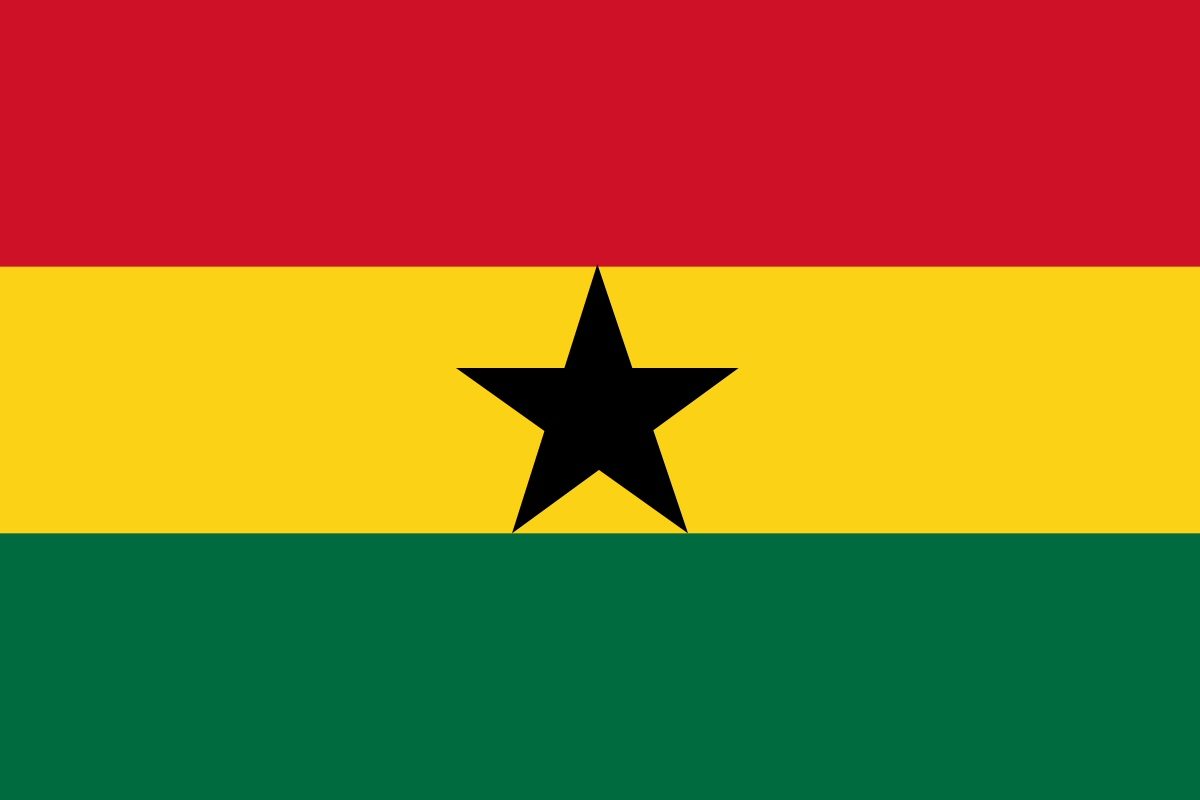

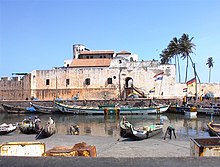
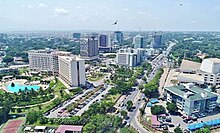
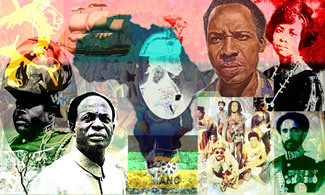



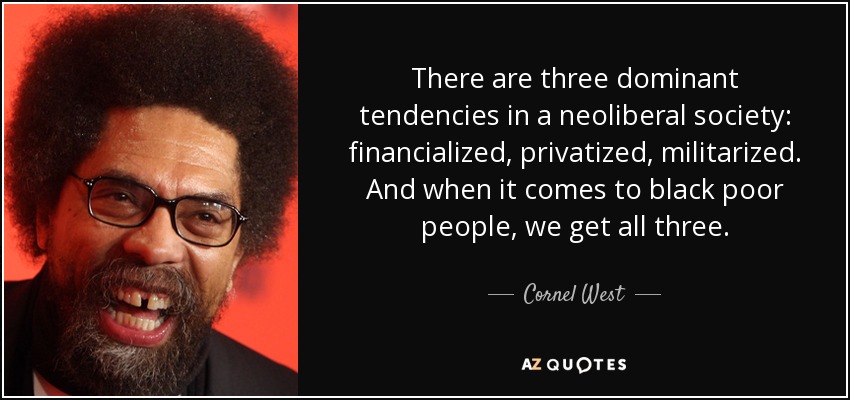
No comments:
Post a Comment